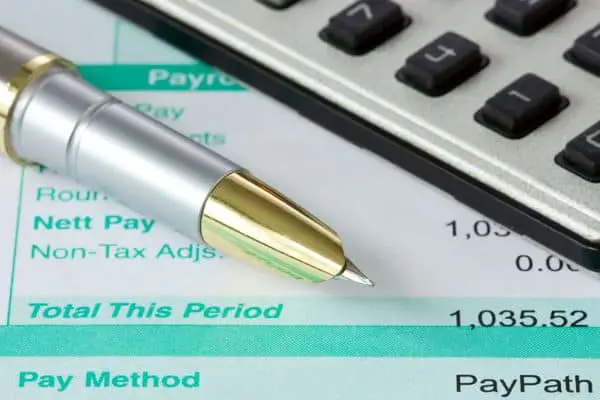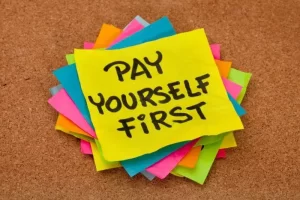
How Long to Keep Pay Stubs in Canada
Keeping your pay stubs is an excellent way to make sure you have proof of your income when you need it. How long do you need to keep them, though? Here’s what you need to know.
What is a Pay Stub
A pay stub also known as a check stub is a document that shows your earnings for a particular period of time it shows any taxes or deductions. It’s usually issued by employers or tax preparers to show their clients how much they earned during a certain period
It also reflects how many hours you worked and what pay rate applies to each part of your work. If you’re salaried, your check stub will only show the total amount paid in one amount minus deductions.
How Long to Hold Your Financial Records in Canada
The Canadian government requires businesses to keep certain types of records for at least six years. These include tax returns, payroll information, and bank statements. If you don’t keep these records, you could face fines or even jail time.
It is recommended to keep financial records as long as the business relationship is still active. This is because creditors may need to review your financial documents to determine whether you can approve a loan.
How Long Do You have to Keep Pay Stubs in Canada
The Canada Revenue Agency recommends keeping source documents between 6 months from the date it was issued. So, ideally, you should keep pay stubs in Canada for up to 7 months.
Canada Revenue Agency may review your records at any time and may ask for documents such as bank statements or cheques at any point in your life within the 7 years.
Why Save Your Pay Stubs?
Here are the basic reasons to save your pay stubs:
Simplifies tax filing: Year records
Pay stubs are useful documents to show proof of income and they’ll make tax filing much easier. You can use them to prove your income if you have to file taxes. Your old pay stubs will help you figure out how much money you’ve earned throughout the year.
You should always carry your pay stubs with you when you go to do your taxes. In case you’re ever asked by an accountant about your paystubs, you’ll be glad that you have them with you.
For Personal Records:
If you need to see income growth over the years, having them on file makes it so much easier to track down and establish them. You can also use your pay stubs for personal records like insurance claims or proof of mortgage down payments. savings balance
Proof of income:
When applying for credit or a loan like mortgages, you’ll have to send proof of your income to the bank or mortgage broker. With pay stubs handy it makes submitting proof of income very easy and fast.
Ensure you’re paid correctly:
Another reason to save pay stubs in Canada is to make sure you’re being paid correctly for the work that you’ve done. If you receive an incorrect salary, this can lead to many issues. For instance, higher or lower at source pension deductions amounts and wrong unemployment insurance deductions amounts.
To Keep Tabs/Track Important Documents.
It is essential to know how long to keep pay stubs in Canada because it helps you stay organized. Keeping track of important documents that your employer issues you with will help you file all of the required information when needed.
Where to save pay stubs
The easiest way to save them is digitally, but you need to keep them on a hard drive or other storage devices for example in the cloud. This will allow you to access them anytime and anywhere you want. To access them in the cloud you only need an internet connection for example in google drive.
Other Places to Keep Pay Stubs
The following are the best places to keep pay stubs:
- Smartsheet– If you’re tired of manually entering your paystubs into Excel or QuickBooks? Smartsheet has free pay stub templates that will save you tons of time. You can easily create your own pay stub template using their free templates. They also offer paid templates for businesses who want to customize them further. Paystub templates are designed to help you manage your payroll better. You can add information such as employee name, date of hire, salary, gross pay, net pay, tax withholding, and other important details.
- Blue-Pencil organizes your paystubs. This simple software helps you manage your paystub data easily. Blue-Pencil is a document and record management system designed to help you store and keep your paystubs organized. It allows you to create multiple accounts and save them in a secure place. You can also share your paystubs with other employees or clients through email. In addition, you can export your data into Excel, PDF, CSV, HTML, XML, TXT, RTF, or Word formats.
How to Get a Pay Stub from your Last Employer
You can get a Pay Stub from your last employer in 3 steps:
1. Contact the Employer
The first step is to contact your employer and request a pay stub. You might need to ask them about the process of you getting them.
2. Complete Paperwork
Next, you have to complete any paperwork required for you to get an official pay stub. If the company only has digital documents, they will send your information electronically.
3. File a Complaint if necessary
Sometimes, employers fail to give you a pay stub. Contact the labour department and request a written statement of your earnings and deductions if this happens to you. You can do this by filling out forms or contacting Human Resources
How to Dispose of Pay Stubs
You should shred your pay stubs if you have a shredder at home. Otherwise, you can go to businesses that provide shredding services.
If you shred them by mistake you could ask your employer to give you a new set of pay stubs.
In Conclusion to How Long to Keep Pay Stubs in Canada
Pay stubs are important documents that show your income from previous pay periods. They are usually kept for six months after they are issued. If you don’t keep them for longer, you might face tax penalties or interest charges.
You should keep your pay stubs for at least six months after they are received by your employer. This allows you to file your taxes correctly. If you want to get rid of these documents, you can shred them or throw them away. However, if you want to keep them for future reference, you can store them in a safe place.































